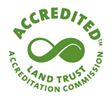89th Legislative Session Wrap Up for Galveston Bay Foundation
- June 16, 2025
- News
The 2025 Texas legislative session was eventful for the Galveston Bay Foundation (GBF), as staff worked to advance coastal conservation through both policy and funding. Our advocacy focused on several key areas, including oyster reef restoration, state budget investments, and salinity standards for Texas bays.
GBF supported Senate Bill 1215, which allows for the placement of cultivated oysters, specifically oyster spat, into natural and private oyster beds and coastal waters. Under SB 1215, the Texas Parks and Wildlife Department (TPWD) will oversee the introduction of cultivated oysters into wild populations, ensuring responsible implementation and supporting ongoing oyster reef restoration efforts. This policy change helps align Texas with proven science-based approaches used across the country. SB 1215 is currently awaiting the signature of Texas Governor Greg Abbott. Governor Abbott has until June 22 to sign or veto legislation, or it will become law without his signature.
Additionally, GBF testified in support of House Bill 3487, which offers a sales and use tax deduction to restaurants that participate in a qualified oyster shell recycling program like GBF’s shell recycling program. Restaurants will qualify for a $2 deduction for every 50 lbs. of shell recycled. This incentive encourages businesses to contribute to oyster reef restoration by recycling shells, a vital resource for building new oyster habitat. HB 3487 remains pending on the Governor’s desk.
On the state budget front, GBF staff played an essential role in securing $1.4 million in the state operating budget for the Galveston Bay Estuary Program (GBEP) over the next two years. This funding supports critical habitat conservation, water quality protection, and community engagement throughout the Galveston Bay watershed. GBEP leverages federal funds matched by state dollars to maximize the impact of every investment in bay restoration. The state budget bill (Senate Bill 1) is awaiting the Governor’s signature.
GBF also advocated for $30 million for the Texas Farm and Ranch Land Conservation Program (TFRLCP), which helps protect working lands and natural habitats from development. While the House version of the state budget included $15 million for this program, the final budget did not retain this funding. Despite this setback, GBF will continue to push for robust investment in land conservation in future sessions.
Finally, GBF advocated for the establishment of salinity standards in Texas bays and for comprehensive salinity studies to safeguard the health of coastal ecosystems. Although related bills, such as House Bill 3728 which would have required salinity studies and standards to protect coastal bays and estuaries did not pass, the conversation around salinity criteria continues in regulatory and stakeholder forums. Salinity standard debates are a particularly relevant topic given the rapid advancement of seawater desalination efforts on the Texas Coast.
Overall, the 2025 legislative session demonstrated the importance of sustained advocacy for Galveston Bay and its watershed. GBF’s efforts led to tangible progress in oyster reef restoration, shell recycling incentives, and estuary program funding. While not all priorities were achieved, these efforts have laid the groundwork for future successes. GBF remains dedicated to protecting and restoring Galveston Bay, and we thank our partners, supporters, and elected officials for their commitment to a healthy, resilient bay.
For more information on GBF’s legislative priorities and how you can get involved, visit our website or contact our government affairs staff at jacob.hupp@galvbay.org.




